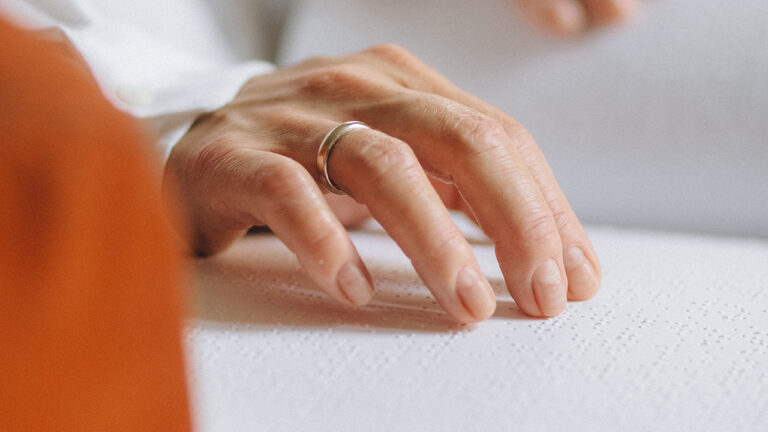There’s nothing more frustrating than encountering an inaccessible self-service device at stores and restaurants. You go to check-out and discover the self-service screen has no accessibility in place. You’re told to select menu items from a self-service screen, but find it’s not made with blind and visually impaired people in mind. You want to check-in for your flight early, but of course, the kiosk is completely inaccessible. This is frustrating and sometimes demoralizing to people with vision loss.
Unfortunately, blind and visually impaired people face these obstacles regularly.. Fortunately, there are groups and people working toward equality in various ways. Until the world jumps 100 percent on board with accessibility for all, we are providing some tips below to mitigate frustration when faced with inaccessible kiosks and self-service devices.
If you encounter a digital device that does not have vision impaired aids, you can email the company’s headquarters and explain the situation. Frequent emails sent to the same company can make an impact. If you find it hard to ask for assistance, remember that most businesses’ employees want to help you.
Businesses operate on the misinformed notion that blind and visually impaired people want human assistance. This is one reason so few businesses install accessibility features on self-service devices. Nonetheless, most employees are glad to assist when asked. From assisting with check-out screens to reading menus to locating specific items, it’s not often a store denies assistance. Generally, you do not have to call ahead of time to request assistance; this is more of a personal choice. If you wish to phone ahead of time, that’s fine. But making the request when you show up is also an option, and legally, it needs to be provided regardless if it’s a doctor’s office, shopping store, airport or movie theatre.
You can always bring a friend or family member with you as vision impaired aids. Many people with visual impairments prefer to do this to avoid sharing personal information with a stranger, even if they work for an establishment. It’s a good rule to ask someone in advance. This way, you can coordinate schedules. Repaying the favor in some form is a good idea. It could be gas money or doing yard work or babysitting or making baked goods. If friends and family are generous with their time, it’s nice to be generous in return, especially when you are aware ahead of time that the business you plan to visit uses inaccessible self-service devices.
Blind people sometimes use vision impaired aids like AIRA and Be My Eyes for a variety of tasks. Depending on the assistance, this can be a perfect option when you want some form of privacy but don’t have a friend or family member to help at the moment. Services like these can read menus, find sizes and prices, describe items and assist with check-out screens and various kiosks. AIRA and Be My Eyes are great resources in these situations. Alternatively, you can FaceTime with a friend or family member to assist with these things as well. They may not be as available as AIRA or Be My Eyes agents though. Keep in mind with all of these options that you need to keep earbuds or headphones handy, so you are the only one listening to your call.
None of these choices are perfect. Accessibility should be a given for all disabled people, but until that time comes, people with visual impairments should have multiple tools available for accomplishing tasks. Technology plays an important role for independent living. Outlook Enrichment’s adaptive technology training program can help you learn how to use Aira, Be My Eyes and many other apps to lessen accessibility challenges.


